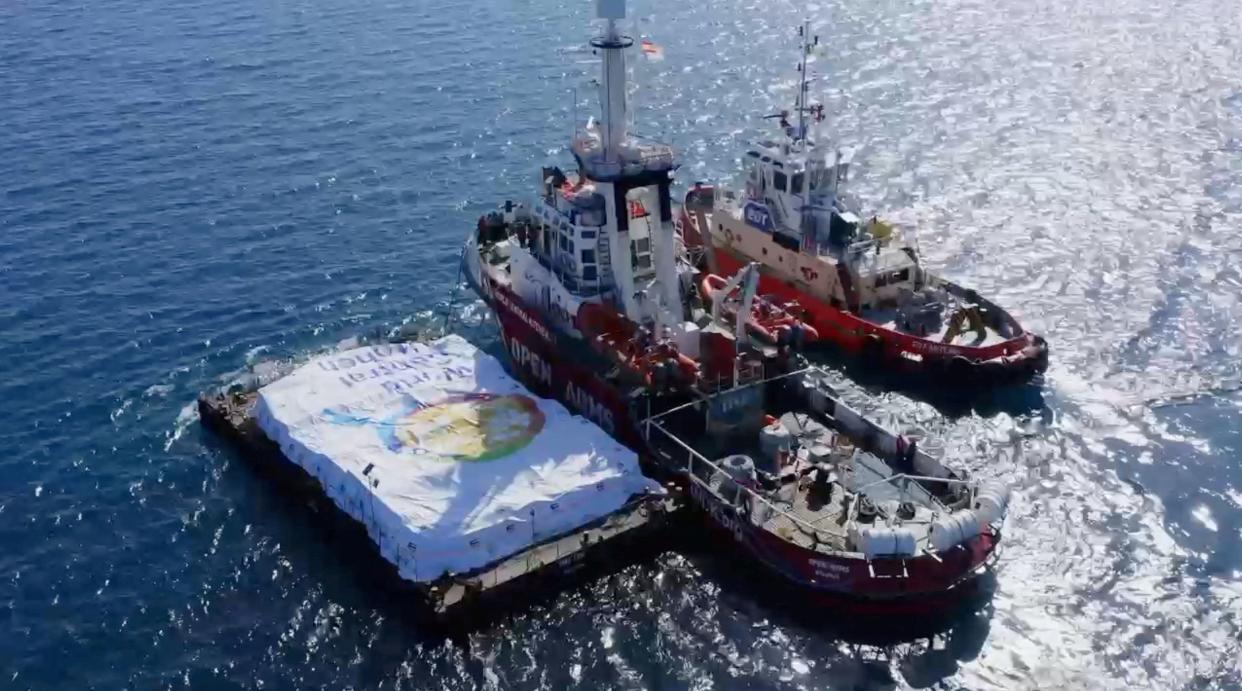First Gaza aid ship sets sail from Cyprus

Semafor Signals
Supported by
Insights from the Associated Press and the Financial Times
The News
An aid ship bound for Gaza set sail from Cyprus, carrying 200 tonnes of food along a newly opened maritime corridor to assist a population on the brink of famine.
The enclave has been hit by a desperate shortage of humanitarian supplies as ground-based aid transfers have been curbed by Israeli restrictions amid the ongoing Israel-Hamas war.
It could take the Open Arms ship up to two days to reach Gaza, which currently lacks an operational port. The U.S. is constructing a new dock but the project is expected to take several weeks.
SIGNALS
Children and babies suffering acute malnutrition
Officials from the United Nations have repeatedly said that Palestinians in Gaza are facing a famine, and children are dying of hunger. At least 20 people have died of hunger in the enclave’s north, Gaza’s health ministry said last week, and in the southern city of Rafah, 16 premature babies died of malnutrition. One doctor told the Associated Press that his team treats as many as 400 children per day, and 75% are suffering from malnutrition. Breastfeeding mothers, meanwhile, are too malnourished to feed their babies, meaning that within days newborns “are brought back to us in a terrible state,” the doctor said.
Aid by sea is insufficient to address crisis
Experts are questioning whether humanitarian supplies delivered by sea will be enough to avert the growing hunger crisis in Gaza. The population already depended on aid: Before the war at least 500 truckloads of food and fuel entered the enclave every weekday. That figure has fallen to typically under 200 a day, the Financial Times reported, as Israeli inspections slow down deliveries. Israel’s allies, including the U.S., have urged the government to send more humanitarian aid to Palestinians displaced by the conflict. The only solution to the worsening situation is to “flood” the enclave with supplies, officials have said, not only to help starving children, but also to undercut gangs and a flourishing black market by disincentivizing looting.

